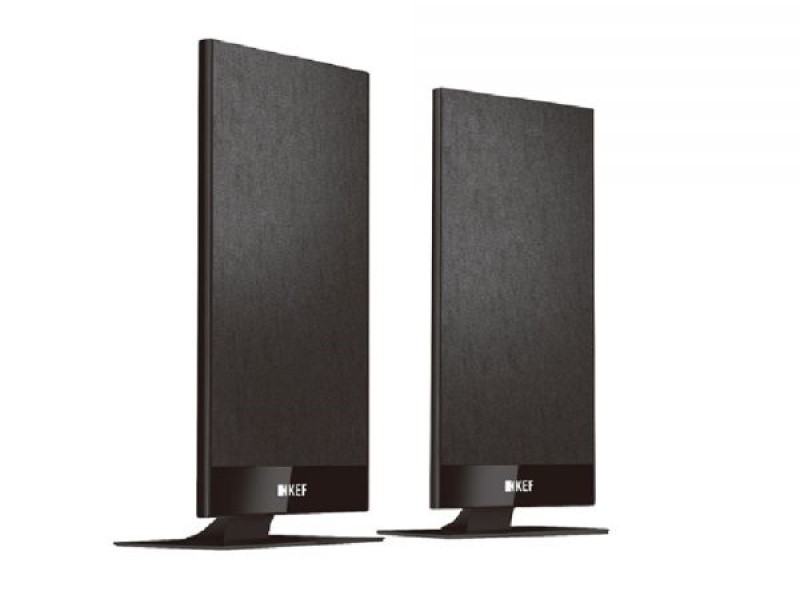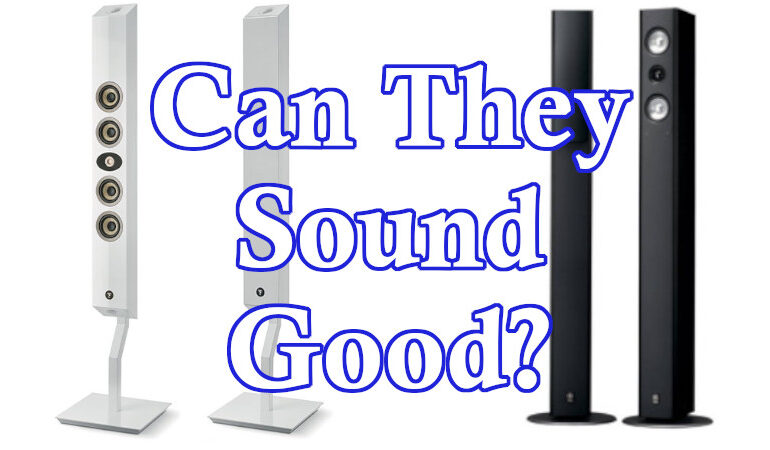Can Thin Speakers Sound Good?
Home theater enthusiasts love to speak in absolutes. “You MUST have two subwoofers!” “Every TV should give you a FOV that is cinematic!” “You MUST have in-ceiling Atmos speakers!” Of course, rarely are any such statements true. One such statement is that thin or small speakers can’t sound good. This is, they claim, because of physics. To make good sound, the speaker cabinet must have enough internal volume and the drivers have to be big enough. Is this true? Are thin speakers always terrible? Let’s discuss!
Defining “Good” Sound
The problem with the “thin speakers can’t sound good” argument is that no one ever defines what they mean by “good.” Around here, we have. To quickly sum up, a speaker has “good” sound when it has a flat frequency response down to your planned crossover, has decent off-axis response, and is free of distortion. Read the article for the full breakdown. When someone claims that thin speakers can’t sound good, they could mean one or all of these things. But are they correct?
Let’s Talk About Bass, Baby!
Small or thin speakers usually have to make compromises for their size. The first, and most obvious, compromise is in the bass. Smaller speakers tend to have less extension (or bass output) than larger speakers. This is (as the Enthusiasts love to say) simply physics. To create bass, a speaker needs to have a larger cabinet.
Except that’s not always true.
Let’s look at subwoofers, the speakers designed to create bass. Ported subs have large enclosures. Sealed subwoofers have much smaller enclosures and still create lots of low bass by employing larger amps. While the physics argument is sort of true, it is only true if you don’t compensate for the smaller enclosure with additional amp power.

Which Leads Us To The Real Answer
Thin speakers can create what nearly everyone would classify as “good” sound as long as you realize and compensate for their limitations. A speaker with a smaller enclosure and smaller drivers is going to have less extension. That simply means you need to cross over into your subwoofer at a frequency appropriate for your thin speakers. Thin speakers usually have lower output (can’t get as loud) as larger speakers. This means you shouldn’t place them in a large room and/or sit too far away from them.
Take Away
If you are thinking of buying thin speakers because of their looks or footprint, you can get some that sound very good. You’ll have to place them in your room carefully and pair them with a capable subwoofer. You are also probably going to have to spend more money on them than you would on larger speakers. A well-designed speaker always costs more and a thin speaker that also sounds good must be well-designed.
Too often, people want to buy thin speakers not just because of their size, but because they think that a smaller speaker will cost less. This might be the case for speakers with poor sound quality. If you want a quality speaker that is also small, you are going to have to shell out more money.


